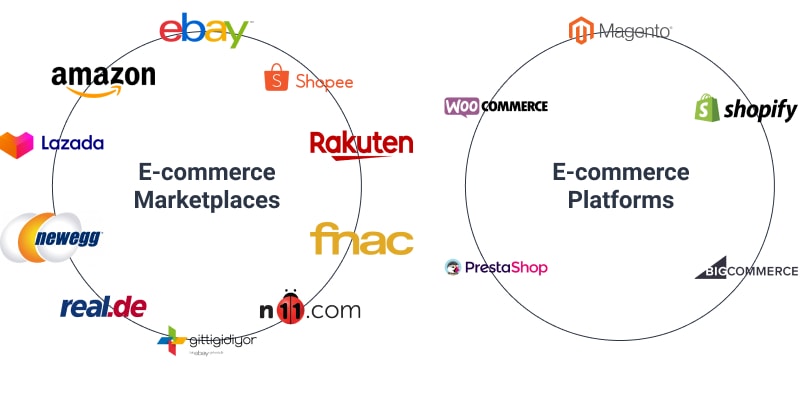
What is the difference in data tracking between an e-commerce marketplace and a singular e-commerce website?
An e-commerce marketplace is a place where many buyers and sellers can both shop and sell goods, which is why it's usually called a two-sided marketplace. eBay, Amazon, Shopee, Lazada, Rakuten are all popular e-commerce marketplaces. There are thousands of sellers and millions of competing products in marketplaces so it is harder to track prices from marketplaces because there are protective and regulatory measures to keep crawlers out of the system to standardizes both the selling and buying experience. Marketplaces also use bot protection services and have security departments to make sure external marketplace data tracking doesn't happen.
An e-commerce website usually serves buyers/consumers where a particular business or brand is behind the website as the only seller. Custom stores built with e-commerce platforms like Magento, Shopify, Woocommerce, Prestashop, or Bigcommerce can all be an example of this. Custom coded websites also fall into this category. Because owners of these websites are in control of their own technology or using shared technology passed through e-commerce platforms, the security or crawlability of these pages is much easier compared to the marketplaces.